
Hambela Benti Nenka G1, Ethiopia, Natural
- Regular price
- $20.00
- Sale price
- $20.00
- Regular price
-
- Unit price
- per
Berries, orange and caramel
COFFEE PROFILE
This Natural processed Heirloom lot is full of bright fruits and complex sweetness – notes of fresh berries and a citrus note of orange are accompanied by a caramel sweetness, which intensifies as it cools.
| TASTES LIKE | Berries, orange and caramel |
| ROAST | Espresso |
Story
This espresso lot hails from the Hambela Wamena district in Ethiopia's Guji Zone, a region celebrated for its exceptional coffee. This highland area, with elevations ranging from 1,900 to 2,200 metres, is characterized by dense native forests and fertile red volcanic soil, creating perfect conditions for producing coffees with remarkable sweetness, florality, and complexity. The Benti Nenka Washing Station, owned by Abubaker Oumar of Testi Coffee, processes cherries from over 600 smallholder farmers in the Benti Nenka kebele. Abubaker, from a family with over four decades in the coffee industry, founded Testi Coffee PLC to elevate Ethiopian coffee through quality-driven washing stations and transparent producer relationships. His initiative empowers local farmers by providing training, consistent cherry pricing, and access to international markets that value traceable, high-end micro-lots. Farmers cultivate indigenous Heirloom varieties on one to two hectares, intercropped with enset, maize, and shade trees, utilising traditional organic practices. This approach, combined with Guji's rich soil and high elevation, results in cherries dense with sugars and complex aromatics. The Benti Nenka station's coffees consistently achieve Grade 1 classification and are highly sought after by international specialty buyers, earning recognition in Cup of Excellence competitions for their intense fruit character, floral complexity, and balanced sweetness.
| PRODUCER | Benti Nenka Washing Station |
| REGION | Hambela Wamena, Oromia region |
| VARIETAL | Heirloom |
| PROCESS | Natural |
| ALTITUDE | 1900-2200 masl |

Origin
Hambela Wamena, Oromia Region, Ethiopia
Guji, located within Ethiopia’s Oromia Region, has become a distinguished coffee-producing area with a unique identity. Although wild coffee trees have thrived here for centuries, organized cultivation began in the 1960s and 1970s when local Oromo farmers started managing small plots using traditional, organic methods. Initially, Guji coffees were often sold under the broader Sidama classification, receiving little individual recognition. However, the 1990s and early 2000s brought significant changes with the establishment of private washing stations, enabling smallholders to process and market their coffees as distinct lots. This transformation, led by pioneering families like those behind Testi Coffee, marked Guji’s emergence as a distinct coffee origin.
By the 2010s, Guji's coffees gained international acclaim for their refined acidity, floral aromatics, and fruit-forward complexity, setting them apart from the lighter profiles of neighboring Yirgacheffe. The region's high elevations, ranging from 1,850 to 2,300 metres, along with rich volcanic soils and stable rainfall, provide an ideal terroir for specialty coffee production. Guji's farmers continue to cultivate indigenous heirloom varieties, many genetically unique to the area. Today, Guji is celebrated as one of Ethiopia’s most dynamic coffee zones, known for its success in competitions like the Cup of Excellence and its embrace of both traditional and innovative processing methods. The region’s reputation is built on the resilience of its smallholder farmers and the leadership of producers like Abubaker Oumar, whose focus on traceability and education has elevated Guji to global prominence. From humble beginnings, Guji has evolved into a respected coffee-growing region, celebrated for its diversity, purity, and expression of Ethiopia’s ancient coffee heritage.
BREW GUIDE
How to get the best tasting cup
NOTE THESE ARE A STARTING POINT AND INDICATE A RANGE TO WORK WITHIN
| Age Best Used | 10-25 days after roast |
| Brew Parameters | Dose 20.3g in the portafilter to extract 42g in the cups in 26 seconds at 93.5 degrees C. |
| Best Freeze Date | 10-14 days after roast |







